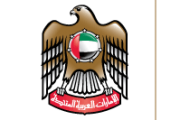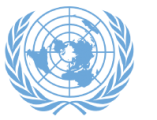Mr. President,
The United Arab Emirates would like to thank Indonesia for organizing today’s open debate. We also thank the briefers for highlighting several critical points related to today’s discussion.
The UAE remains concerned about the growing link between organized crime and terrorism, especially in this difficult time. As highlighted in the twenty-sixth report of the Analytical Support and Sanctions Monitoring Team (S/2020/717), terrorist groups are “using the outbreak to advance propaganda and fundraising”. The report also mentions that some of these groups has been using the lockdown during the pandemic to increase the illegal excavations and thefts from archaeological sites in conflict zones. Additionally, terrorists continue to raise funds through money laundering and trafficking of persons, weapons, drugs, and natural resources, as well as kidnapping and extortion.
Last year, the Security Council adopted resolution 2482 (2019) on the links between organized crime and terrorism. The UAE co-sponsored this resolution because we strongly believe that our efforts to eliminate international terrorism cannot succeed without cutting off all sources of funding, including organized crime. To achieve this goal, the UAE recommends the international community enhance its efforts in the following four ways:
First: we must strengthen our legal frameworks and implement relevant UN resolutions that address terrorism and transnational organized crime. laws only work if states enforce them through investigation and prosecution. For its part, the UAE continues to update its legal frameworks and enhance the efforts of law enforcement bodies to combat and criminalize terror financing. The UAE has also implemented the latest recommendations by the Financial Action Task Force (FATF) to strengthen its anti-money-laundering/counter-financing of terrorism system.
Additionally, the UAE reiterates that the UN system must hold Member States accountable for their financing of terrorism when it occurs, especially when such actions violate relevant Security Council resolutions and their obligations under the International Convention for the Suppression of the Financing of Terrorism.
Second: we need to enhance the capacity of governments, private sector, and relevant institutions to combat the threats of terrorism and organized crime. This requires the provision of human, financial and logistical resources, especially to affected regions and countries. Terrorist and criminal groups constantly adapt, and we must do the same to disrupt and dismantle trafficking networks, in addition to enhancing border-control capacities.
The UAE’s financial intelligence units have the training and equipment necessary to analyze and investigate suspicious transactions. The UAE’s Central Bank also provides anti-money laundering training at the national and regional levels, in addition to implementing specific measures to address emerging challenges in terrorist financing. We have also launched the GoAML program to collect and analyze financial information to combat money laundering and terrorist financing, in cooperation with the United Nations Office on Drugs and Crime (UNODC). These combined efforts have successfully disrupted the financing of extremist groups through the UAE's financial system and within its borders.
Third: we encourage greater cooperation at local, regional, and international levels. Transnational threats require collective efforts. For instance, the UAE ensures close cooperation with the private sector and not-for-profit and charitable institutions in the country. On a regional level, the UAE is one of the founding countries of the Financial Action Task Force for the Middle East and North Africa (the Egmont group), which plays an important role in the exchange of information between financial intelligence units to combat the financing of terrorism in the region. On a global level, the UAE worked with France and UNESCO to establish the International Alliance for the Protection of Heritage in Conflict Areas to prevent the destruction and illegal trafficking of cultural property by terrorist groups.
Finally, we emphasize that there is no one-size-fits all. We encourage strategies that take into account each country or region’s unique context to effectively address the linkage between organized crime and terrorism. This requires extensive research and the involvement of regional stakeholders.
In conclusion, the UAE strongly supports continued efforts to understand the nature and scope of the linkages between terrorism and organized crime. We will continue to work with our partners to tackle these joint threats and maintain international peace and security.
Thank you.


